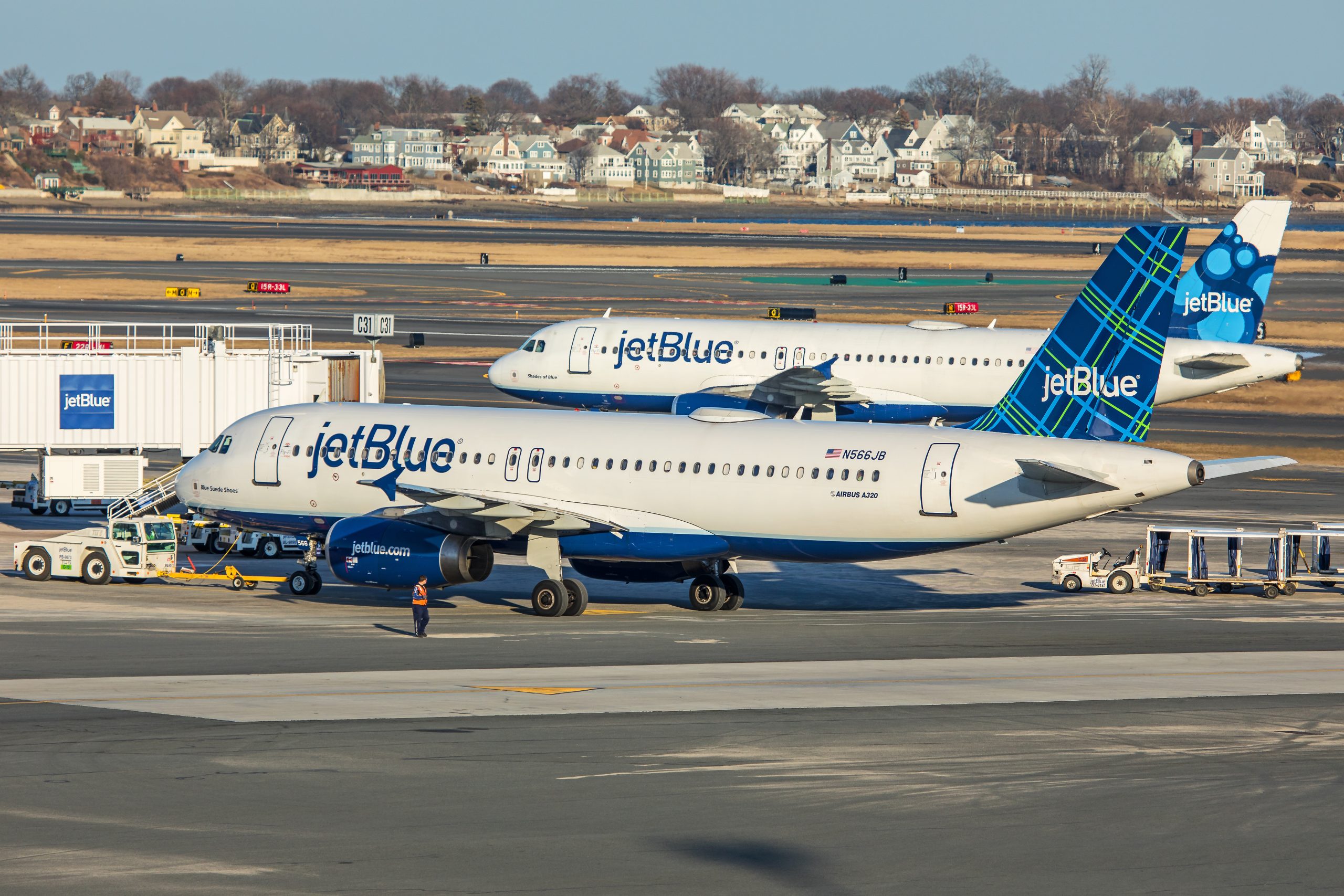
JetBlue Reveals Diminished First Quarter Earnings
On Tuesday, JetBlue announced that it has adjusted its annual revenue forecast. The carrier announced that its revenue will be…

An Air Canada A321 at LAX (Photo: AirlineGeeks | William Derrickson)
While airlines in the U.S. are starting to see some light at the end of this very long tunnel caused by the Covid-19 pandemic, in Canada times are still much tougher. Air Canada announced its results for the first quarter posting an operating loss of 1.049 billion Canadian dollars ($865 million) with a negative EBITDA — meaning earnings before adjusting for interest, taxes, depreciation and amortization — of 763 million Canadian dollars.
The airline burned approximately 14 million Canadian dollars per day on average during the first three months of the year, but can still rely on almost 6.6 billion Canadian dollars in liquidity raised through the capital markets.
Air Canada has recently reached an agreement for a financial aid package worth approximately 5.9 billion Canadian dollars, which is mainly comprised of repayable loans and that required the airline to provide cash refunds to all the customers who had their flights canceled in 2020 when the pandemic struck and flight operations almost came to a complete stop.
“It is now essential that governments communicate and implement a reopening plan for our country recognizing that a healthy aviation sector is vital to Canada’s economic recovery,” said Air Canada President and Chief Executive Officer Mr. Michael Russeau in a statement. “Starting with replacing blanket restrictions with science-based testing and limited quarantine measures where appropriate, Canada can reopen and safely ease travel restrictions as vaccination programs roll out. We have seen elsewhere, notably in the U.S., that travel rebounds sharply as COVID-19 recedes and restrictions are lifted, and we fully expect this can be replicated in Canada.”
Canada has one of the strictest policies in the world concerning international travel. First off, only Canadian citizens and permanent residents can enter the country, a measure that has been in place since March 2020. Furthermore, last January the government put in place a quarantine scheme requiring all returning passengers to submit a negative PCR test before boarding their flight to Canada, undergo a new test on arrival, spend a three-day isolation period in Government-approved hotels at a cost of up to 3,000 Canadian dollars and then complete a further 11-day quarantine at their own residence, being submitted to another test on day eight and day 14 after their arrival.
“The current mandatory hotel quarantine for arrivals has proven ineffective. It should be eliminated,” noted Mr. Rousseau during the quarterly earnings conference call, as infection rates per capita in Canada’s most populous provinces during March and April surpassed those of Mexico and of the U.S. for the first time since the beginning of the emergency.
Air Canada has reduced its available seat miles by approximately 82% in the first quarter of 2021 compared to the same quarter of last year, but it plans to double its capacity in the second quarter compared to 2020. All regional operations have been consolidated under Jazz Aviation, including the Air Canada Express brand. This has required the transfer of all Embraer 175 to Jazz, a move that is expected to generate a 400 million Canadian dollar cost reduction over the next 15 years.
In the past 12 months, Air Canada has completed up to 7,500 all-cargo flights. The Canadian carrier was one of the first airlines in the world to modify the cabin of some of its passenger wide-body aircraft to be able to carry light cargo around the world as cargo demand superseded passenger demand.
The airline is also continuing the rollout of a renewed Aeroplan program, the airline’s frequent flyer program that has become part of Air Canada’s collaboration with Starbuck. Furthermore, the carrier is continuing its efforts to reduce its carbon footprint to meet the self-imposed target of achieving net-zero emissions by 2050 and to reduce absolute greenhouse gas (GHG) emissions by 2030 and it is investing C$50 million in Sustainable Aviation Fuel.
Vanni fell in love with commercial aviation during his undergraduate studies in Statistics at the University of Bologna, when he prepared his thesis on the effects of deregulation on the U.S. and European aviation markets. Then he pursued his passion further by obtaining a Master’s Degree in Air Transport Management at Cranfield University in the U.K. followed by holding several management positions at various start-up carriers in Europe (Jet2, SkyEurope, Silverjet). After moving to Canada, he was Business Development Manager for IATA for nine years before turning to his other passion: sports writing.
Receive a daily dose of the airline industry's top stories along with market insights right in your inbox.

On Tuesday, JetBlue announced that it has adjusted its annual revenue forecast. The carrier announced that its revenue will be…

Royal Air Maroc and Safran have deepened their collaboration in aircraft engine maintenance. In celebration of its 25th anniversary, Safran…

The importance of the North American market to Fiji Airways has been further highlighted with the announcement of an interline…



